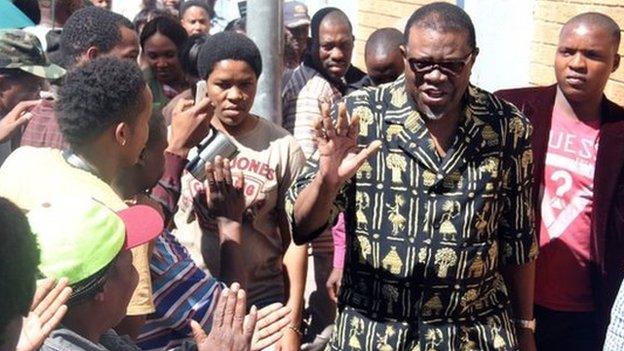Namibia's late President Hage Geingob's funeral amid surge in patriotism
- Published
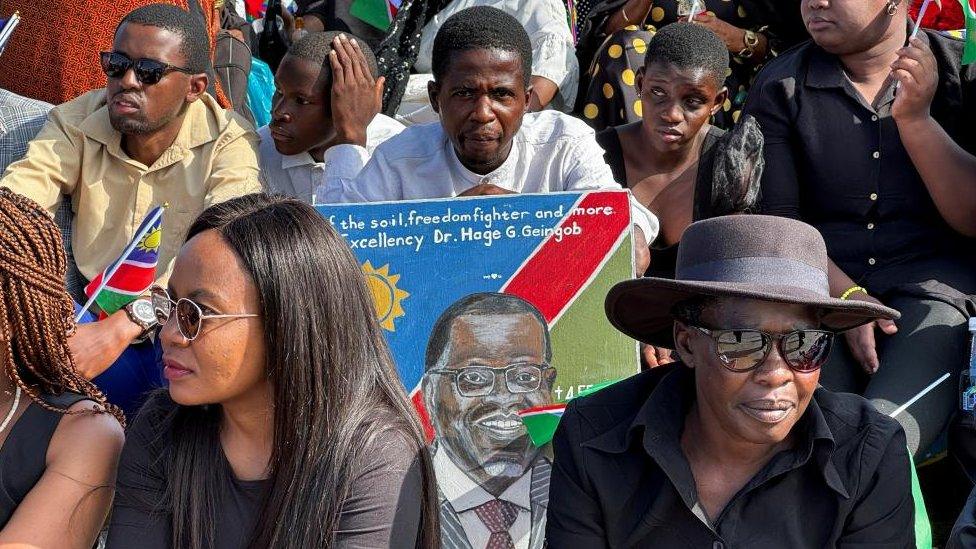
Namibians from all walks of life came together to mourn the death of their president
A huge crowd has attended the state funeral of Namibian President Hage Geingob following his death at the age of 82 from cancer.
Mr Geingob was interred in a mausoleum at Heroes' Acre on the outskirts of the capital, Windhoek, as mourners paid tribute to a man they hailed as a nation-builder and a pan-African hero.
His widow, Monica Geingos, wept as his casket was lowered into his grave.
Mr Geingob's funeral marked the culmination of three weeks of mourning.
Mr Geingob died in hospital on 4 February, with his deputy, Nangolo Mbumba, sworn in as his successor soon afterwards.
His death led to a surge in patriotism, with Namibians from across the political divide coming together to mourn.
Thousands of people - many carrying the Namibian flag and draped in the national colours - lined the streets as his casket was driven through Windhoek on Friday and Saturday.
His body lay in state at Independence Stadium, before being taken on Sunday, in a gun-mounted carriage, to Heroes' Acre.
Huge screens were put up so that the public could see his funeral.
The military gave Mr Geingob a 21-gun salute while K-8 fighter jets flew past.
This was the first time Namibia had buried a president since its independence from South Africa, then under white-minority rule, in 1990.
Described as the chief mourner, Mr Mbumba said Mr Geingob was unwavering in his commitment to the nation.
"Your impact on us has been profound, your footprint on this nation is immense. You leave our country in better shape," he said.
Mr Geingob's two predecessors, Sam Nujoma and Hifikepunye Pohamba, attended his burial, along with almost 20 heads of state and government.
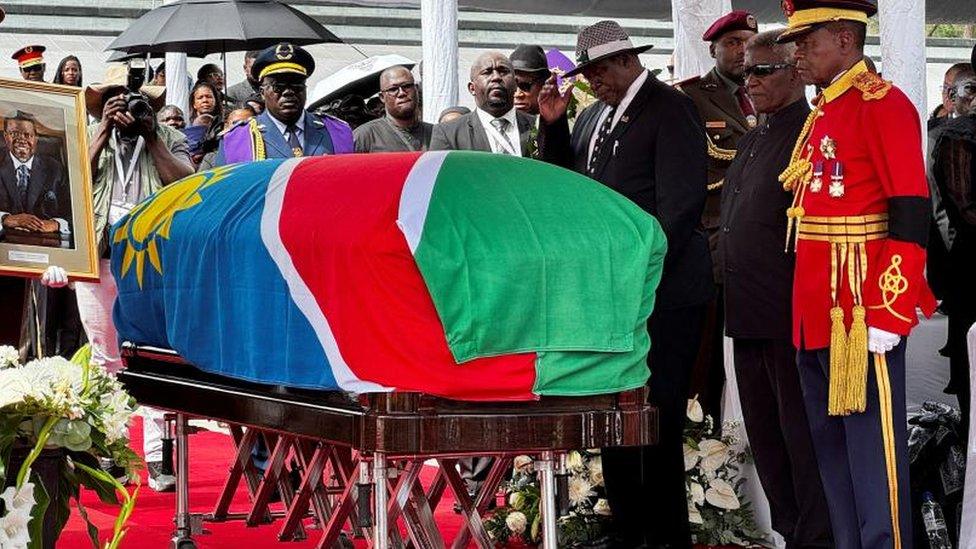
Hage Geingob served as Namibia's president from 2015 until his death on 4 February
Germany's President Frank-Walter Steinmeier was among the dignitaries who spoke at Mr Geingob's memorial on Saturday.
The privately owned Namibian newspaper quoted him as saying that Germany should apologise for the atrocities, external it committed in Namibia during colonial rule.
"I believe it is high time to tender an apology to Namibia. My only regret is that Geingob will not be there to close the process he started," Mr Steinmeier was quoted as saying.
Namibia was under German colonial rule from 1884 till World War One. In 2021, Germany acknowledged committing genocide there.
German colonisers massacred more than 70,000 Herero and Nama people between 1904 and 1908, in what historians consider to be the 20th Century's first genocide.
Mr Geingob was first elected president of Namibia in 2015, and had been involved in talks with Germany to secure reparations.
He was due to step down later this year, following the end of his two terms.
You may also be interested in:
Related topics
- Published4 February 2024
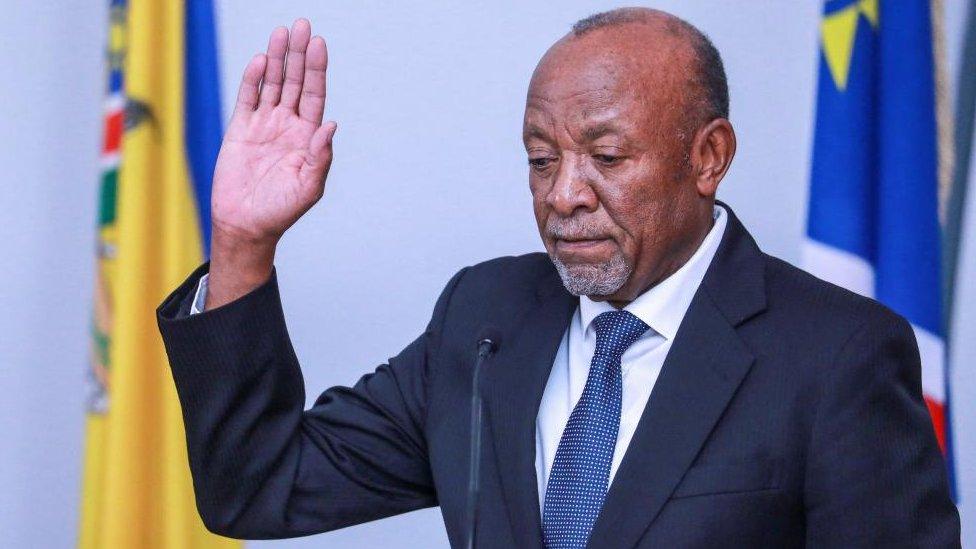
- Published1 December 2019
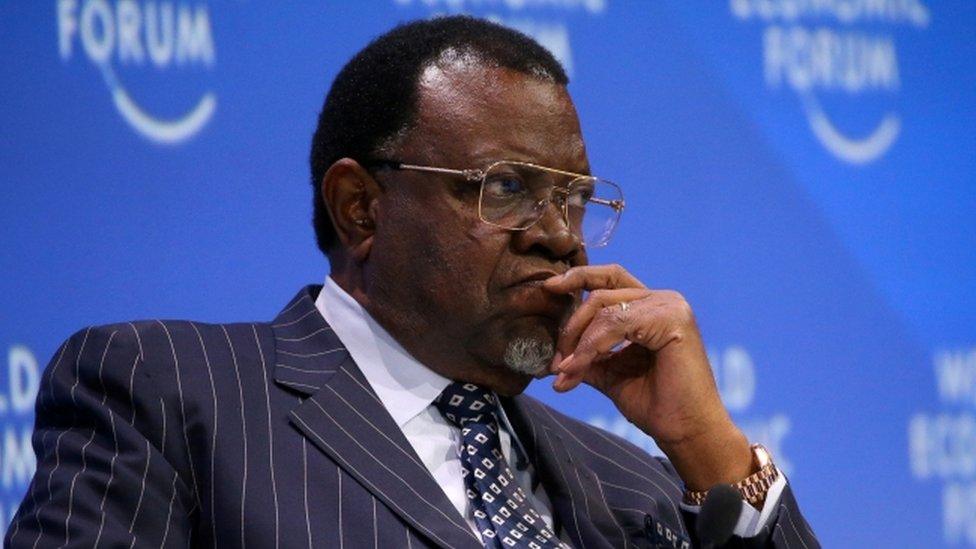
- Published1 December 2014
